Maintaining your oral health is important!

Regular Professional Cleanings
- Remove plaque build-up from the surfaces of teeth. (Bacteria in the mouth form plaque, which collects on teeth and causes decay, gum disease and gingivitis.)
- Remove tartar from teeth surfaces. (Tartar, or calculus, is plaque that has become so hardened on the teeth that its removal requires special procedures. Tartar below the gum line is also an indicator of gum disease.)
- Remove surface stains from teeth through polishing.
Examinations
Regular examinations help detect and prevent health issues before they become serious. Consistent dental check-ups help catch problems when they are small and easier to treat. Left unattended, small treatable problems become worse and may require more extensive, expensive procedures to repair. Dental examinations generally include the following:
- Gum disease screening
- Oral cancer screening
- Visual tooth decay evaluation
- Visual gum disease examination
- Gum pocket measurement and tracking
- X-ray examination to detect: tooth decay, cysts, tumors, problems below the gums and other hidden issues
“An ounce of prevention is worth a pound of cure.”
–Benjamin Franklin
Let’s Stay on Top of Your Oral Healthcare

Oral Hygiene
- Flossing
- Brushing
- Mouth rinsers
Flossing
We recommend that you add flossing to your dental care routine. If your teeth are tightly spaced, shop around for a floss that will slip more easily between your teeth. If you find it difficult to handle floss, try a floss holder.
What Is the Proper Way to Floss?
The following guidelines are important to flossing correctly:
- Take 18 inches of floss and wind it around the middle finger of each hand. You can use these fingers to take up floss as it becomes dirty. Using your thumb and forefinger, pinch the floss leaving 1-2 inches in between for cleaning.
- Gently move the floss up and down in the spaces around your teeth. Never snap the floss down onto your gums, as it can cause damage.
- As you move the floss down into the space between two teeth, slide it up and down against the surface of one tooth. Gently clean at the gum line as well. Repeat this for the other tooth.
- Repeat this process for all of your teeth.
Brushing
Soft-bristled toothbrushes can reach more surfaces but be sure to get one that is comfortable to hold and works well in your mouth. Don’t struggle with one that has bent or frayed bristles that can’t be directed accurately. The American Dental Association recommends replacing your toothbrush every three to four months.
What Is the Proper Way to Brush My Teeth?
The following guidelines are important to brushing correctly:
- Make sure to use a soft bristled brush. Hard bristled brushes can wear down the enamel of your teeth
- Place your brush at a 45 degree angle to your gum line. Bristles should contact both the tooth surface and the gum line
- Use short back and forth strokes or tiny circular movements to brush your teeth. Each movement should be no bigger than the size of each tooth
- Make sure to use gentle strokes while brushing. Gentle strokes are effective in removing plaque, while too much pressure can wear down the enamel of your teeth
- Brush all surfaces of each tooth, including the outer, inner and the chewing surfaces of the teeth.
- Don’t cut your brushing short! Make sure to brush for at least 2 minutes
Oral Irrigators
Oral irrigators can help remove particles of food around the teeth, especially if you wear braces or fixed partial dentures. But they are not a substitute for brushing and flossing.
Mouth Rinses
Mouth rinses with fluoride can help prevent tooth decay. Using an antiplaque or antigingivitis mouthrinse may be recommended if you have plaque or gum disease.
Check with us if you are not clear on the proper use of any of these products.
Your Oral Health is Our Priority

Oral Cancer Screenings
During your dental visit, your periodontist can talk to you about your health history and examine these areas for signs of mouth and/or throat cancer. Regular visits to your dentist can improve the chances that any suspicious changes in your oral health will be caught early, at a time when cancer can be treated more easily.
Symptoms of Mouth or Throat Cancer
- Sores that bleed easily or do not heal
- Thick or hard spot or lump
- Roughened or crusted area
- Numbness, pain or tenderness
- Change in the way your teeth fit together when you bite down
Be sure to tell your periodontist about any problems you have when chewing, swallowing, speaking or moving your tongue or jaw.
At South Texas Periodontal Associates, our oral surgeons will include a thorough oral cancer screening, including a VizLite scan, during your comprehensive exam.